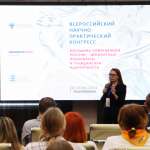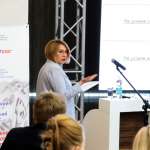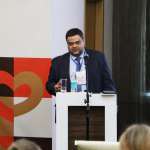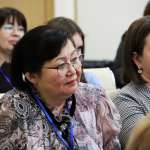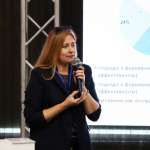Sholom Aleichem Priamursky State University, within the framework of the University Development Programme for 2023–2030 of the strategic academic leadership program ‘Priority-2030. Far East', is developing the work of the scientific and methodological laboratory of value-based competencies through the formation of an expert community on topics in the field of the formation and development of civil and regional identities of young people. As part of this project, the university, supported by the Ministry of Education and Science of Russia, will hold the All-Russian Scientific and Practical Congress ‘Youth of Modern Russia: Value Priorities and Civil Identity’ on May 16–17, 2024.
At the Congress in the professional community, the participants will discuss topical issues of the formation of civil and regional identities for young people and develop proposals for designing social practices to form sustainable civil and regional identities in the Far East.
The experts are leading specialists in the subject area, scientists from Herzen Russian State Pedagogical University, Kostroma State University, Kosygin Russian State University, E.M. Primakov National Research Institute of World Economy and International Relations of the Russian Academy of Sciences, and others.
In the framework of the plenary session, the conceptual foundations for the formation of sustainable civic and regional identities were discussed. For the first time, the results of a pilot study implemented by the Laboratory of Value and Meaning Competencies created at Sholom Aleichem Priamursky State University for the development of civil and regional identities among young people in the Far East will be presented for public discussion.
Representatives of the country's universities from 8 regions of the Russian Federation and employees of more than 20 educational organizations of different levels will meet at the discussion and scientific and methodological platforms.
‘The Congress is a great opportunity to discuss topical issues that today attract the attention of the state and the whole society, as well as to share experience in solving problems related to strengthening the all-Russian civic identity,’ notes Igor Osipov, a researcher from the Institute of Civic Identity, Kosygin Russian State University. ‘As you know, a recent decree of the President of Russia approved the Fundamentals of the State Policy of the Russian Federation in the field of historical education. Therefore, holding such an event with the participation of leading Russian scientists will make it possible to work out in more detail specific mechanisms of upbringing and educational work considering Russian spiritual, moral, and cultural-historical values. It is especially significant that the organizer and initiator of the Congress is Sholom Aleichem Priamursky State University. This fact shows the degree of involvement in the solution of national problems and the scale of joint work’.
An important achievement of the Congress is the adjustment of interaction between different-level educational systems in a unified manner. The exchange of practices will make it possible to formulate invariants and approaches that respect the principle of continuity in the formation of civic and regional identities. The Congress has become a platform for accumulating and transferring the best youth work practices in the Far East.
The social practices of working with young people to form sustainable civic and regional identities, presented at the event, provide an opportunity to consider the problem from different perspectives and analyze social and psychological mechanisms and methodological tools. The theme of the Congress is in line with the government's goals of reducing the outflow of population from the Far Eastern Federal District and creating a youth cohort ready to live, study, and work in the Far East.

